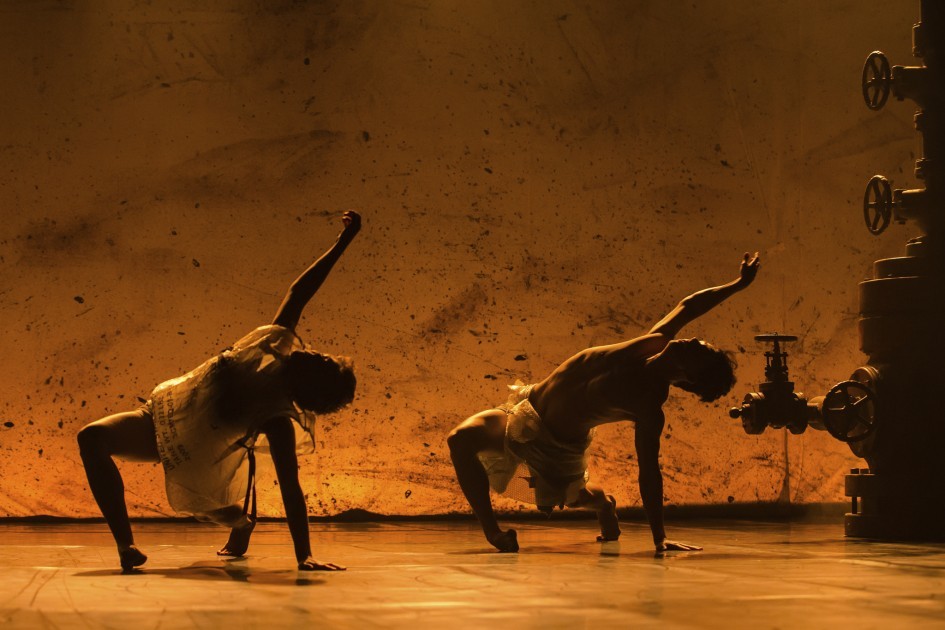Provocations are a series of discussions inviting participants to be actively present and ready to be challenged in the ways they relate to other(ed) - racialized, marginalised, tokenised, colonised – bodies.
Friday 19, September
10am - 11am
Salle boisée
Sweet Discomfort
with Thomas F. DeFrantz (USA)
Simultaneous Translation English-French
Reputed American choreographer, curator and scholar Thomas f. DeFrantz, whose writings focus on afro-futurism and Black corporeities, invites us to consider the privileges of our gaze and place in relation to bodies of colour, and to contemplate concrete changes in our spectatorship and curating practices, opening space for their situated storytelling without othering, tokenising or exoticising.
Thomas F. deFrantz directs SLIPPAGE: Performance|Culture|Technology, a research lab that explores emerging technology in live performance applications. He also convenes the Black Performance Theory working group as well as the Collegium for African Diaspora Dance. Creative work includes Queer Theory! An Academic Travesty, Monk’s Mood: A Performance Meditation on the Life and Music of Thelonious Monk, fastDANCEpast, reVerse-gesture-reVIEW and re-Orientations, an Afrofuturist fantasy which premiered at Links Hall, Chicago, May, 2024. He believes in our shared capacity to do better and engage creative spirit for a collective good that is anti-racist, proto-feminist, and queer affirming.
Registration required, priority to curators
Friday 19, September
11am - 12pm
Salle boisée
South to South Choreographies
Fangas Nayaw (Taiwan), Dalisa Pigram (Australia), Joel Bray (Australia) and Ratri Anindyajati (Indonesia) in conversation with River Lin (Taiwan)
Simultaneous Translation English-French
What orientates our body, attention; and identities? From South to South, this conversation will explore choreographic imaginaries, methodologies and economies of production that exist outside the Euro-American circuits of valuation and of visibility. Through looking at the heterogeneity of the notion of South, it invites to consider how dance works coming from extra-European spaces resist formatting of gaze or of format imposed by the European context.
Free entry, subject to availability
Saturday 20, September
11am - 12pm
Salle boisée
A conversation on the Beginning, the Middle and the Beginning
With Original Bomber Crew (Teresina, Brazil) and Idio Chichava (Maputo, Mozambique) in dialogue with Nayse Lopez (Brazil) and Quito Tembe (Mozambique)
Simultaneous Translation Portuguese-French-English
This conversation, whose title is inspired by Nego Bispo, a Brazilian activist, poet, scholar and quilombo leader best known for his concept of counter-colonisation, will bring together artists coming from territories historically marked by colonial violence—where Black and Indigenous bodies were the targets of genocide, evangelisation, and disciplinary dance training. These artists, who develop their practices in peripheral, unstable yet deeply fertile contexts come together not to talk about scarcity, but about abundance. For more than being dance creators, they are inventors of technologies of artistic coexistence: Bomber Crew’s “dança quebrada” evokes both the fragmentation of the body and the creative force of Brazilian “quebradas”; Idio Chichava’s Vagabundos repositions the African immigrant body at the heart of the contemporary scene. Stemming from the margins, they each represent alternative ways of being, of creating, and of circulating, building grounds for reinventing a counter-colonial, de-centered, non-white body choreography.
Free entry, subject to availability
Sunday 21, September
11am - 12pm
Salle boisée
Dance as new ceremony, truth-telling and re-matriation
Victoria Hunt in dialogue with Rachael Swain (AUS)
Simultaneous Translation English-French
Indigenous communities define "rematriation" is a twofold movement: restoring the invisibilised ontological and epistemological knowledge of the collected artefacts as well as returning them to their original communities. In this conversation with Marrugeku's Rachael Swain, Victoria Hunt, an Australian–Māori artist and a descendant of Hinemihi o te Ao Tawhito, speaks of dance as ceremony, understood as transmitting ancestral energies and Indigenous futurities. For Hunt, whose whare tupuna is currently held in England and France, rematriation is a political and spiritual act, a reawakening of what colonial legacies have tried to sever and erase. In this sense, she considers herself as a living site of ontological resistance. Through her work, she questions long-held paradigms of possession within the global artefact market, proposing instead a return to Indigenous frameworks of custodianship, care, and relational accountability. It is a call to reimagine our responsibilities—to justice, to healing, and to return.
Free entry, subject to availability
